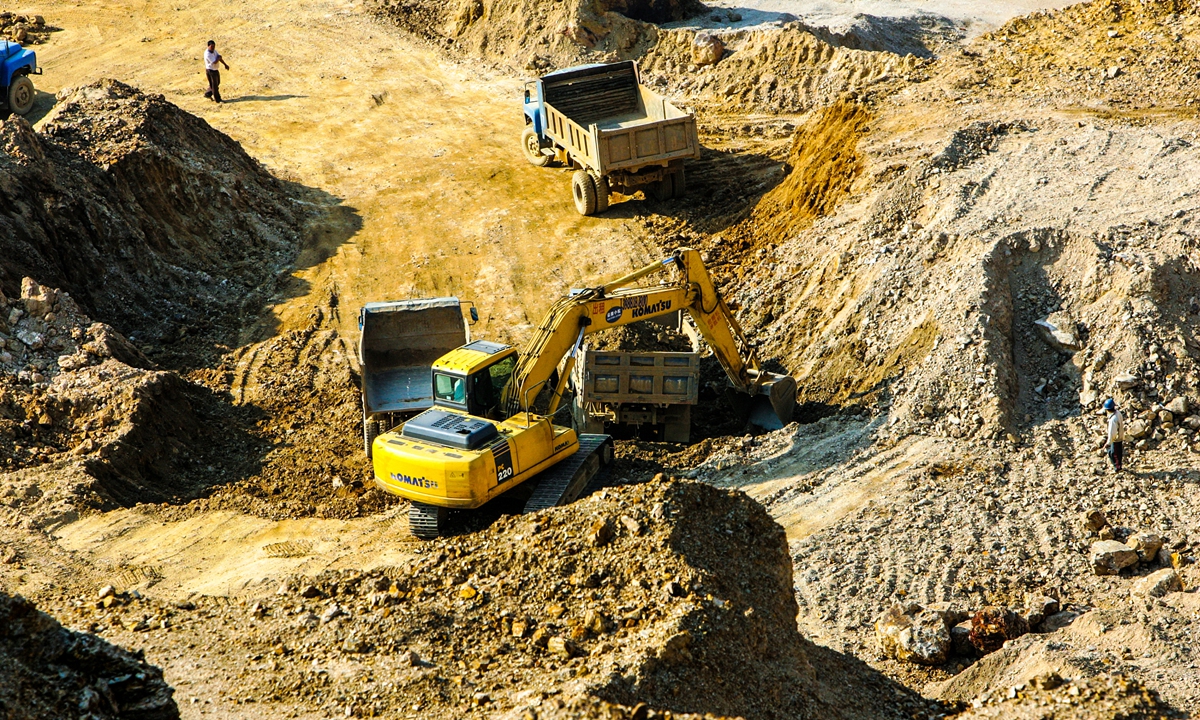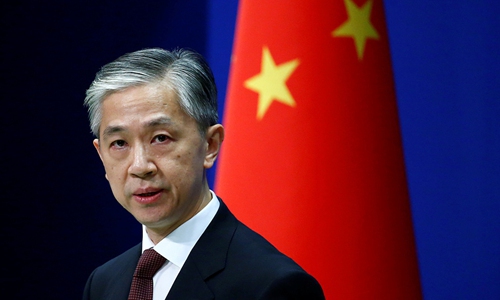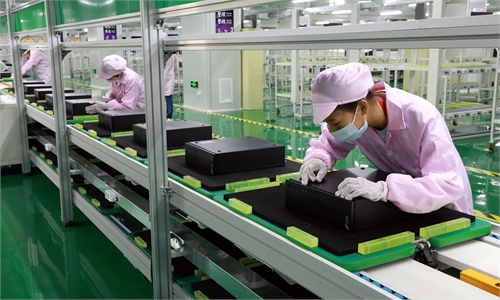
Rare earth. Photo: VCG
After reporting a better-than-expectation 3.1 percent GDP growth for the fourth quarter in 2020, Canberra on Thursday announced a 10-year plan, aiming to boost processing capability of its critical minerals and to enhance its manufacturing industry.
By planning to develop minerals processing, as well as turn its resources into high-value products, like batteries and solar cells, the plan shows intention to further stimulate economy out of the COVID-19 pandemic quagmire as well as win advantages in the imminent clean-energy era.
Australian Prime Minister Scott Morrison later reportedly highlighted rare earths and other critical minerals of the plan and noted that Australia needs to shore up its position in the global supply chain which the country and its partners can rely on. Alongside the US' on-going campaign to set up a so-called "China-free" supply chain, the plan is widely interpreted by observers as a move targeting China and trying to weaken China's role in the critical minerals sectors around the world.
As a relatively trade-oriented economy, Australia highly depends on export of raw materials, agricultural goods and others. It is reasonable for the country to intend to add more values on its products, especially when the global economy has been badly smashed by the health crisis, including the Australian economy which contracted 1.1 percent in 2020.
However, mineral processing is a technology driven industry. Taking rare earth development for instance, China does not only rank first in reserving, producing, exporting and consuming, the country has superior technology in purification which was regarded as more crucial than the resource itself.
It takes large amounts of talent, technology, a sound industrial chain as well as massive investment to cultivate a mineral processing sector, with none of the above could be completed within a swift course.
Moreover, the processed minerals may still be shipped to the Chinese market, which certainly not in line with Australia's intention to decrease economic dependence on China.
The potential "weakening China's position in the strategic resource sector", which international markets are increasingly focused upon, appears to be little more than a stunt. Building a new system or replacing one critical part will be anything but a straightforward task for Australia and its partners.
For starters, it takes years of massive investments, while the global economy is under serious contraction with accelerating financial risks. An A$1.3 billion ($1 billion) Modern Manufacturing Initiative is a drop in the bucket for Canberra to facilitate critical minerals processing, and five other areas.
Meanwhile, it takes even decades to foster sufficient capability to win certain share in one industrial chain, let alone rewriting the structure to weaken or replace China's position in the critical minerals area.
Australia has overestimated its capability in the global mineral supply chains. Pursuing higher added value is reasonable, but it should not be driven by political intentions and certainly should not be a move to serve an ideological campaign led by the US.



